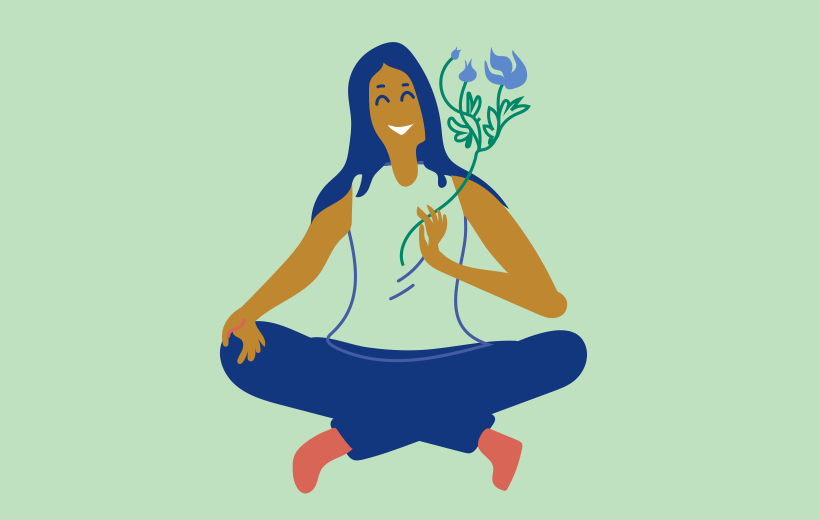In the Grip of Craving
By Stephanie Wagner • 2 min read

QUESTION: I have strong sexual desire that causes me a lot of suffering. For years, I’ve tried to suppress it. Suppressing it only seems to intensify it, and indulging it doesn’t bring relief either. I can’t seem to find the middle path. How can I free myself from this?
STEPHANIE’S RESPONSE:
Desire and craving in any form can be extremely painful. Whether we’re craving sexual encounters, pleasure, intoxicants like alcohol or drugs, or even certain foods, all forms of craving can grip us and lead to suffering.
There’s already a lot of wisdom in your question — you’ve recognized that indulging the desire isn’t satisfying, and suppressing it doesn’t help either. The invitation from Rinpoche, which can be found in the Joy of Living teachings, is this: can we learn to stay with the pull of craving in a way that’s balanced, open, and spacious?
When we experience craving, there’s a very strong physical sensation in the body, and then there’s the object that we desire. One way to work with it is actually to bring awareness to that inner pull of wanting to move towards something. So that inner pull of wanting to move towards something is love: your wanting to be happy. Or if you’re wanting to alleviate the itch of the craving, that’s compassion. They’re two sides of the same coin.
You can explore this by staying present with the sensations and recognizing that the pull doesn’t last forever. Craving is more than just physical sensations; it includes thoughts and feelings that suggest you need something to feel okay. You can observe these thoughts, images, and sensations and see that craving is made up of various parts. The wisdom lies in seeing these components and noticing how they change over time.
As difficult as it may be, try to observe how thoughts and sensations move and shift. In doing so, you may notice that they pass, much like fireworks in your inner experience.
I understand this is challenging, especially if there’s a habit of indulging these impulses. The pleasure you get from indulging reinforces the habit cycle, making it harder to break. This applies to any habit — whether it’s having a glass of wine when stressed or responding to sexual desire, the reward strengthens the loop.
Breaking the cycle involves disrupting it. Can you hang with the discomfort without indulging, allowing the sensations and thoughts to change? You might also explore replacing the impulse with something more aligned with your values, like drinking tea or doing a short yoga sequence.
From a habit perspective, recognizing that habits are made of three parts —trigger, behavior, and reward — can help. By disrupting one part of the cycle, you can begin to break the habit loop — that cycle of desire and “wanting to move toward” something and indulging it.
This piece was excerpted from an online Joy of Living webinar.
November 2024

Stephanie Wagner is a board-certified health and well-being coach (NBC-HWC) with a Master of Arts from the University of Minnesota in Integrative Health and Well-being Coaching. In addition to her work at Tergar, she is the Director of Learning and Development for a nonprofit Healthy Minds Innovations, founded by renowned neuroscientist Dr. Richard Davidson.
Learn meditation under the skillful guidance of world-renowned teacher Yongey Mingyur Rinpoche at your own pace.


Janet Ritvo has been the backbone of Tergar Canada, its longest serving director, taking on the role of secretary and then president. She has tended to Tergar Canada as a mother would a child — with great care and perseverance, providing stability to the ups and downs that organizations commonly go through.

From outer success to inner clarity, Emilda Rahim shares her journey of discovering the dharma — and how it quietly transformed her life.

Meditation practice, like a relationship, unfolds gradually and requires patience, curiosity, and a willingness to engage with its layers over time. By understanding our own learning process, staying connected to the deeper meaning of practice, and adapting when challenges arise, we can sustain motivation and develop a lasting, meaningful connection with our path.
If you enjoyed reading our articles, please join our mailing list and we’ll send you our news and latest pieces.